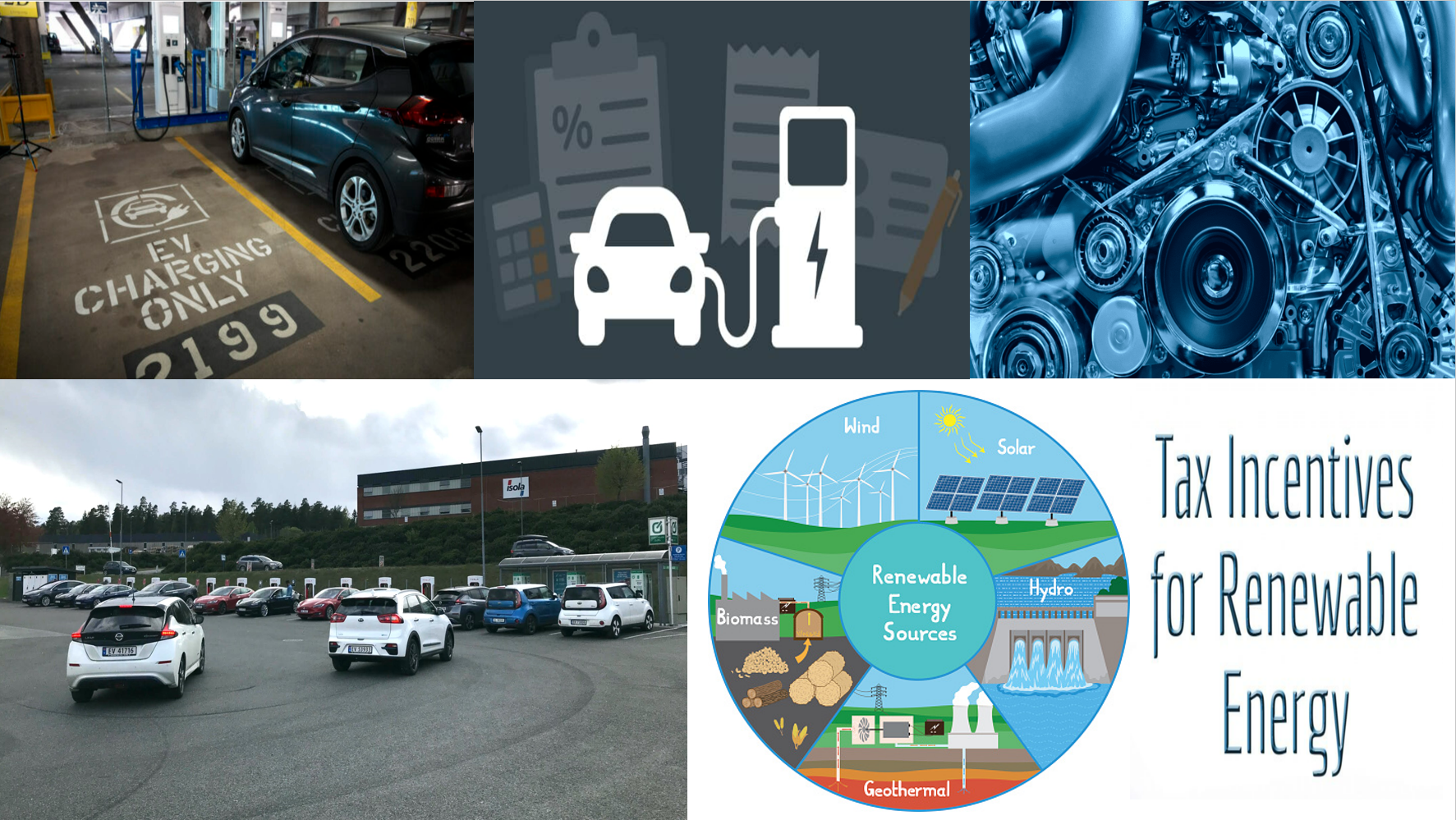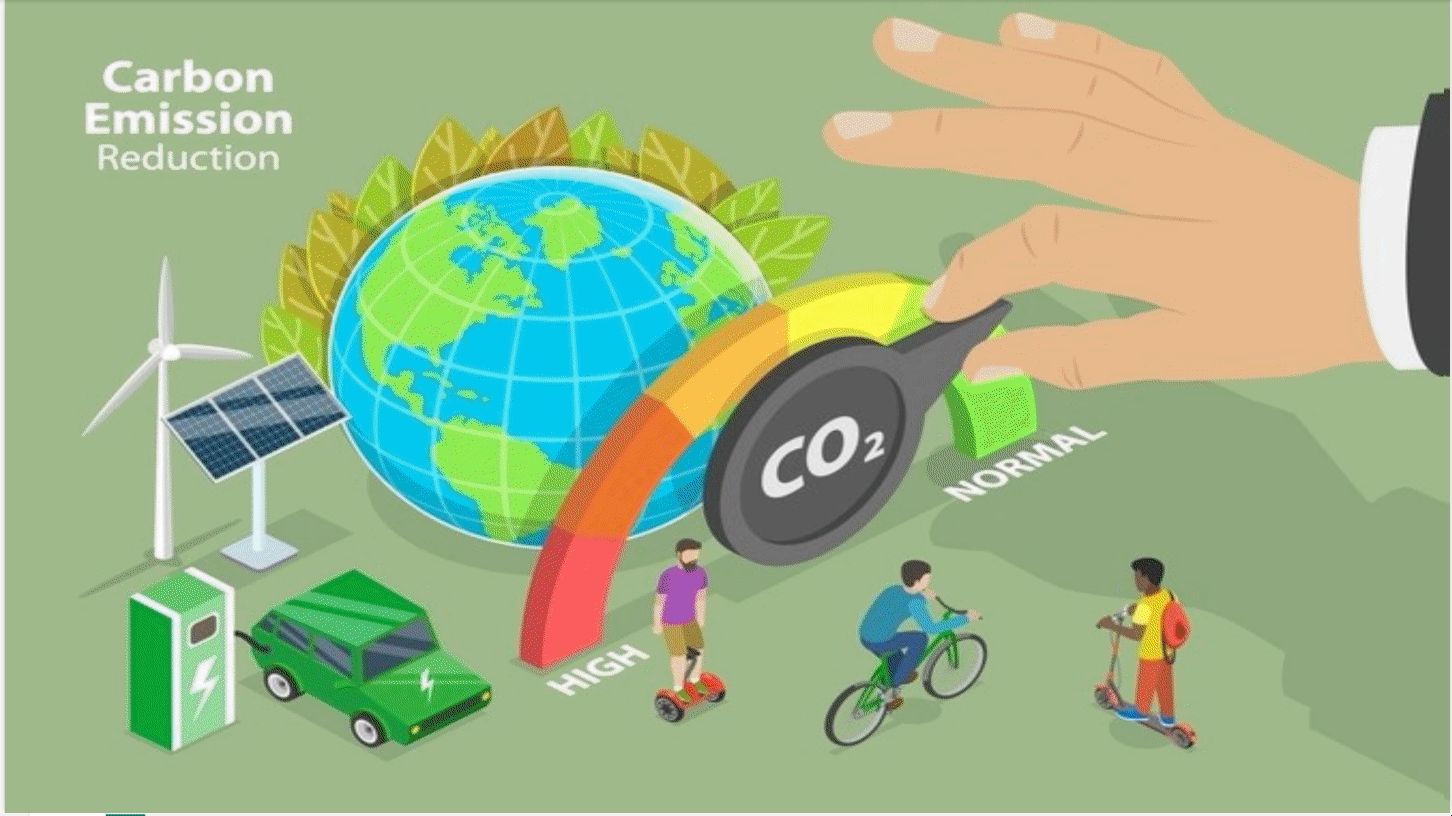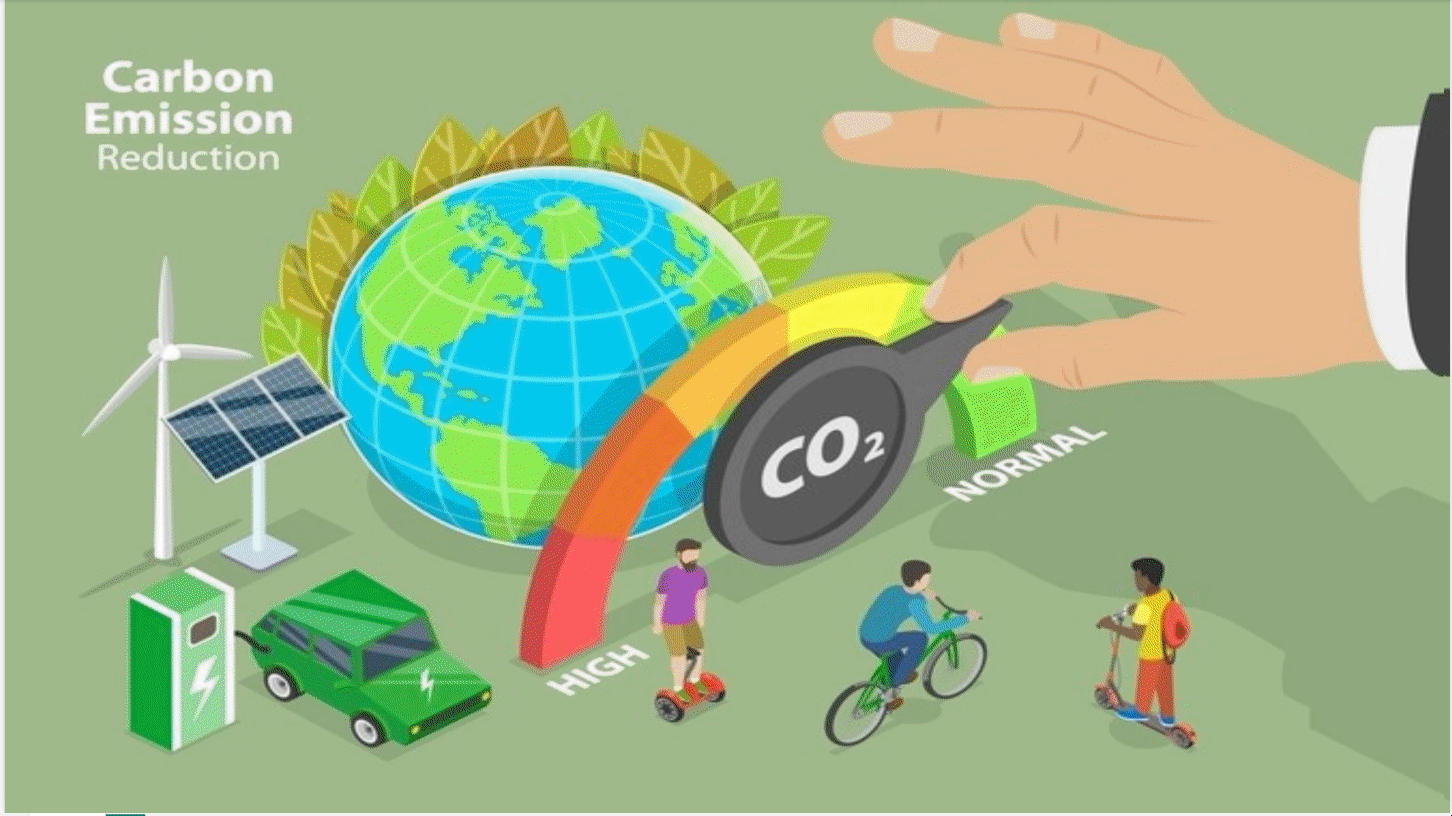Completion Date:
Project Overview
Electric Vehicles + Renewable Energy = \\\"Winning Solution\\\" (among other things) will help us fight climate change. Carbon footprint of an EV is smaller but to make that CO2 footprint as small as possible, its important to get that electricity for charging those EVs should come from Renewable Energy sources. Emissions from transport account for one quarter of the Europe’s greenhouse gas emissions. To achieve climate neutrality, the European Green Deal calls for a 90% reduction in greenhouse gas emissions from transport by 2050. This report will give an insight on how CO2 emissions have impacted with new registrations of Electric Vehicles and Renewable energy consumption across Europe from 2013-2019.
Role:
Problem Statement
Most of the countries in EU are failing to reduce CO2 emissions from 2013-2019. While Norway is leading the world in reducing carbon emissions from vehicles( on avg decreased by 12.09% every Year), countries like Germany ( on avg only decreased by 0.68% every Year), UK (on avg only decreased by 0.16% every Year) and Greece (on avg increased by 0.32% every Year) needs much work to do to reduce their carbon emission from new passenger vehicles in order for Europe to achieve Carbon Neutrality.

Key Takeaways
Negative Insights:
1. CO2 in Germany on avg decreased only by 0.68% every Year with an increase in EV share of only 0.26% every year and an avg Renewable Energy consumption share of 13.3%.
2. Switzerland\\\'s CO2 emissions decreased only by 1.24% every year and still have an avg CO2 of 135.6g/km, highest compared to all the countries here with an increase in EV share of 55.8% every year and decrease in Renewable Energy Consumption of 0.14% every year.
3. Spain\\\'s EV share has increased 49.7% every year, but its Renewable energy consumption has decreased 2.37% every year and its CO2 emissions decreased only by 0.46% every year
Positive Insights:
1. In 2019, CO2 in Norway decreased by 28.86% compared to the Previous Year. Previous Year 2018, CO2 in Norway only decreased by 11.21%.
2. Netherland\\\'s EV share has increased by 59.1% every year and its Renewable energy consumption has increased by 14.57% every year which played a big part in reducing the country\\\'s CO2 emissions to an avg of 105.51 g/km.
3. Ireland\\\'s EV share has increased by 101.4% every year and its Renewable energy consumption has increased by 12.86% every year which played a big part in reducing the country\\\'s CO2 emissions to an avg of 113.26 g/km.
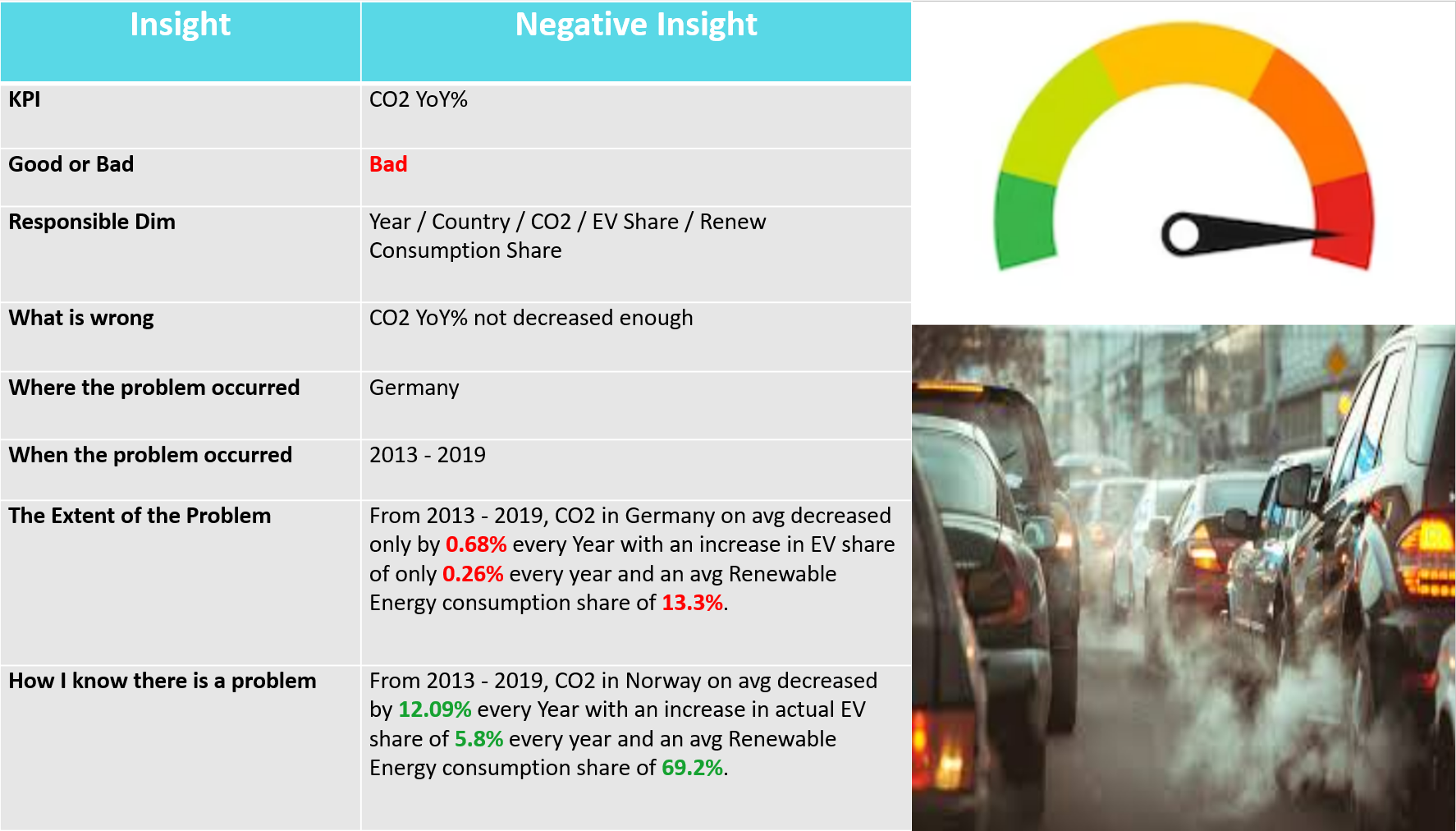
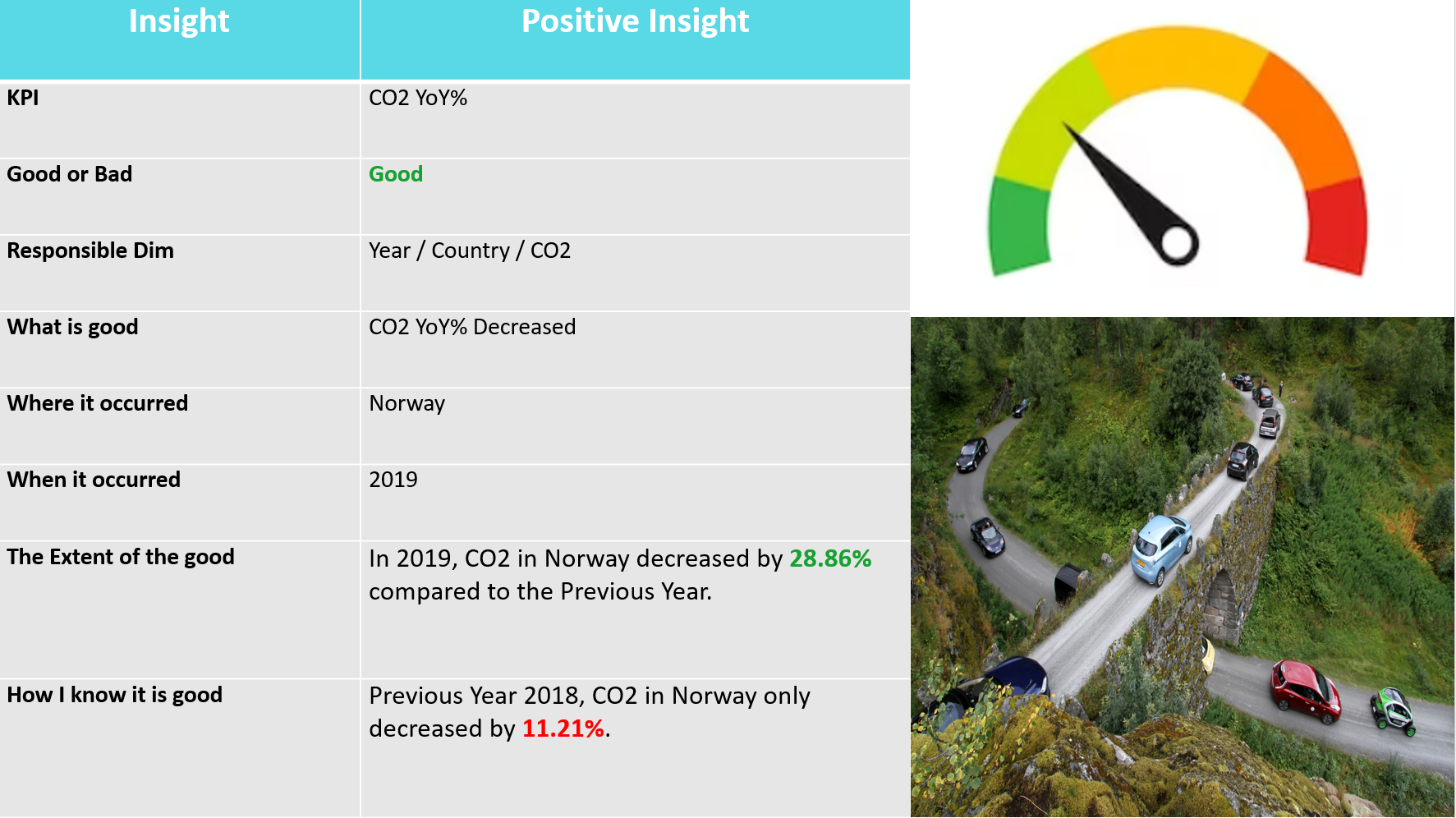
Next Steps
To reduce CO2 emissions from road transport, market share of EVs need to be increased significantly and energy consumed should come from Renewable sources that are Wind, Solar, Hydro, biomass and geothermal.
1. If you look at countries in EU that have high levels of avg CO2 emissions and the market share of new vehicles that are Electric in 2019, Luxembourg is 1.78%, Germany is 1.76%, UK is 1.64% and Spain is 0.76%. But if you look Norway, country that have the lowest avg CO2 emissions in EU, its market share of new vehicles that are Electric in 2019 is 42.4% . So, how did Norway succeeded in promoting EV? To encourage the purchase of EVs, Norway introduced a comprehensive package of generous tax incentives, including the exemption of EVs from the registration tax, VAT and motor fuel taxes, as well as at least a 50% reduction in road taxes, and ferry and parking fees. I suggest other countries to try and implement some of those tax incentives and customize the package with what your country can afford.
2. Share of Renewable consumption energy of Norway is 69.2%, where as Luxembourg, Netherlands, Belgium, France, UK and Greece is < 15%. These countries need to take advantage of the supporting schemes like feed-in-premium, Quota obligations with tradable green certificates, Loan guarantees, soft loans, Investment grants, Tax incentives, Tendering schemes offered by the government to establish renewable energy power plants.
3. While Electric Vehicles can significantly reduce carbon emissions, the next thing to focus on to achieve net zero carbon emissions is the decarbonization of production of materials that\\\'s used in Electric vehicles particularly batteries. To do this, equipment manufacturers will need to make internal changes by establishing transparency on the emissions embedded in their upstream activities, educate and train engineers understand the carbon impacts of design decisions and incorporate carbon targets alongside established industry metrics such as cost and performance.
4. Automotive Industry will need to identify critical changes that need to be made in the value chain, like rethinking the end of life of a vehicle, which right now is left up to individual manufacturers. They must develop industry wide standards and approaches to collaboration that focus on sustainability.
5. As for what an individual can do to reduce CO2 emissions, buy net zero emission vehicle, use the bike-share programs if your city or town has them, take public transit when possible, carpool with friends instead of driving alone, use ride-sharing services. Install Solar panels on rooftop of your house to have clean energy source.
